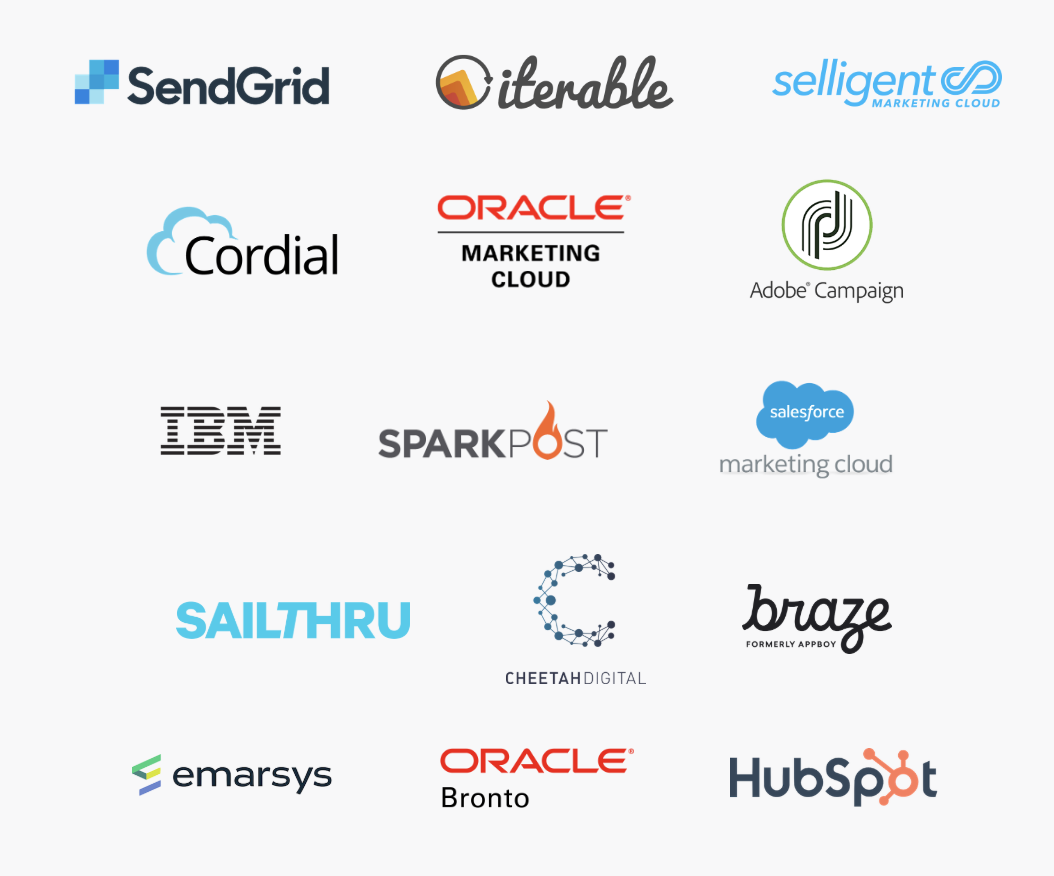Salesforce acquires Rebel, maker of ‘interactive’ email services, to expand its Marketing Cloud
Salesforce’s Marketing and Commerce Cloud is the company’s smallest division today, so to help beef it up, the company is making an acquisition to add in more features. Salesforce has acquired Rebel, a startup that develops interactive email services for businesses to enhance their direct marketing services: recipients of interactive emails can write reviews, shop and take other actions without leaving the messages to do so.
In an announcement on Rebel’s site, the startup said it will be joining Salesforce’s Marketing Cloud operation, which will integrate Rebel’s API-based services into its platform.
“With Rebel’s Mail and API solutions, brands, including Dollar Shave Club, L’Oreal and HelloFresh, turn emails into an extension of their website or app – collecting data, removing friction from the conversion process, and enhancing the customer experience. Rebel will enhance the power of Salesforce Marketing Clod and fundamentally change the way people interact with email,” the founders note.
That makes it sound as if the company’s existing business will be wound down as part of the move, although Salesforce and Rebel are not specifically commenting on that yet, and so customers haven’t been informed yet one way or the other.
Terms of the deal have not been disclosed in the Rebel announcement. We have contacted both the startup and Salesforce for further comment and to ask about the price. To date, Rebel — co-founded originally as Rebelmail by Joe Teplow and Trever Faden — had raised only about $3 million, with investors including Lerer Hippeau, Sinai Ventures, David Tisch, Gary Vaynerchuk, and others, so if the deal size is equally small, Salesforce likely will not be disclosing it.
Salesforce has made a number of acquisitions to build and expand its marketing services to compete with Adobe and others. Perhaps most notable of these was buying ExactTarget, one of its biggest-ever acquisitions, for $2.5 billion in 2013. (And according to some, it even wanted to buy Adobe at one point.) Competition has been heating up between the two, with Adobe most recently snapping up Marketo for $4.75 billion.
But on the other hand, marketing is currently Saleforce’s smallest division. It pulled in $452 million in revenues last quarter, putting it behind revenues for Sales Cloud ($1 billion), Service Cloud ($892 million) and Salesforce Platform ($712 million). Adding in interactive email functionality isn’t likely to float Marketing and Commerce Cloud to the top of that list, but it does show that Salesforce is trying to improve its products with more functionality for would-be and current customers.
Those customers have a lot of options these days, though, in targeting their own customers with rich email services. Microsoft and Google have both started to add in a lot more features into their own email products, with Outlook and Gmail supporting things like in-email payments and more. There are ways of building such solutions through your current direct marketing providers, or now directly using other avenues.
What will be interesting to see is whether Rebel continues to integrate with the plethora of email service providers it currently works with, or if Salesforce will keep the functionality for itself. Today Rebel’s partners include Oracle, SendGrid, Adobe, IBM, SailThru and, yes, Salesforce.

We’ll update this post as we learn more.


